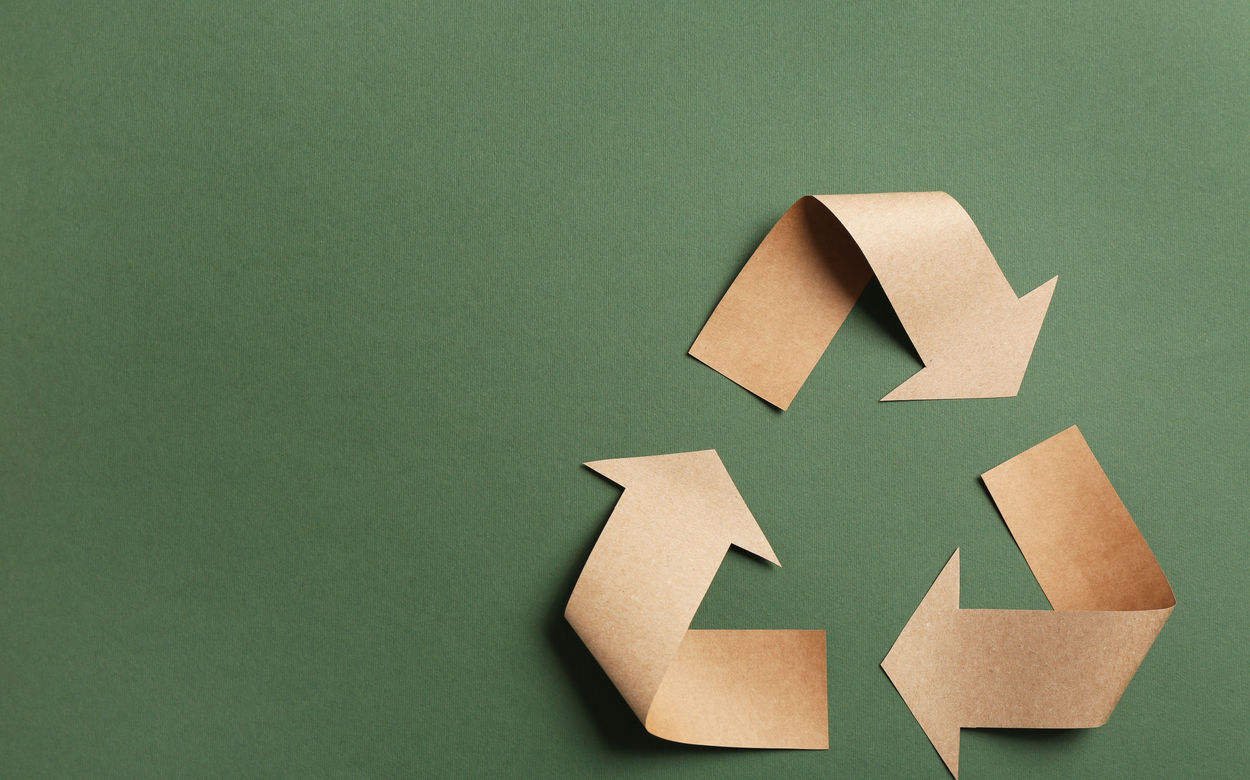Paper fibres – Recycling without limits
27.05.2022
How many times can you recycle cartonboard? Practitioners and researchers have been looking for the answer to this question by tolerance testing waste paper fibres. The result dispels a widespread myth.
This is no ordinary screen: it is actually a sheet former, a high-tech research tool which can produce a finished sheet of paper from the smallest fragments of waste paper. The Institute of Bioproducts and Paper Technology at the Graz University of Technology is one of the few places that would need this kind of device. This puts the institute in a strong position to get to the bottom of an enduring myth – the myth of the seven recycling cycles.
The seven-cycle myth
“There is a vehemently held noti on in the paper industry that paper fibres can only be recycled a maximum of seven times before they break down into tiny fragments and can no longer be recycled. However, practical experience has led us to suspect that this figure is far too low. Now we have scientific evidence to prove it,” explains Manfred Feichtinger of MM Board & Paper. His department has worked in partnership with the TU for a long time. Together they launched an experiment to investigate the recyclability of folding cartonboard packaging in more detail. The scientists have been working in the laboratory for a whole year on this very time-consuming experiment. And the result: “Cartonboard can be recycled as waste paper any number of times, losing only a small part of its original strength properties,” Manfred Feichtinger reports.
Larger fibres in focus
The team at TU Graz led by research manager Rene Eckhart passed folding cartonboard packaging through the recycling cycle 25 times. They started with an uncoated, unprocessed cartonboard made from various types of waste paper, such as writing and printing papers, corrugated board and paper from household collections. After the cartonboard was dissolved, it was first pretreated to separate it from mineral components that would have distorted the test result. The researchers accepted the fact that a considerable amount of the fibre particulates would be lost in this step. They were primarily interested in the behaviour of the larger paper fibres after several cycles.
The raw material produced in this way was “beaten”, i.e. broken down into its smallest components. The aforementioned sheet former was then used to produce and test new sheets of paper. The screened water that runs towards the channel as part of the sheet forming process was collected and used to dissolve the sheets as part of the continuing recycling process. This meant that no additional fresh water was used in subsequent recycling processes, which also kept the loss of fibre material to a minimum. “Nevertheless, it is impossible to avoid losing around one per cent of the fibre material because the screen can’t capture everything,” Rene Eckhart from TU explains.
To infinity and beyond
This process does not have a negative impact on the fundamental properties of the recycled material. The cartonboard does not lose its drainage capacity or its strength. According to the final report co-authored by Manfred Feichtinger and Rene Eckhart, “The latest study has basically clearly shown that the pulp itself allows over 25 cycles of recycling without any problems. And we do not envisage that it will be a delimiting trend either.” The results would show that folding cartons are a very sustainable packaging solution. It appears that they can be recycled as often as desired. The process is only limited by the amount of waste paper that can be collected and any damage or loss that occurs when the source material is cleaned.
This does not change anything in practice. “We have always recycled as much and as often as possible, but now we have proof that there is no loss of quality associated with it,” Manfred Feichtinger explains. The elaborate experiment was definitely worth all the effort.


![[Translate to English:] [Translate to English:]](/fileadmin/_processed_/4/a/csm_SBTi_MM_Group_8a066e9fac.png)
